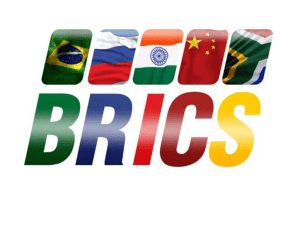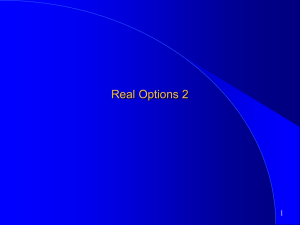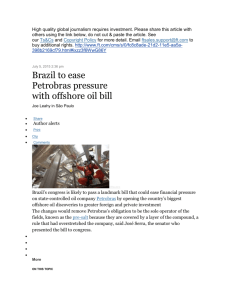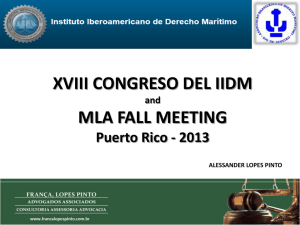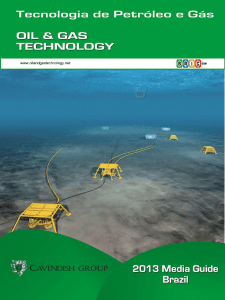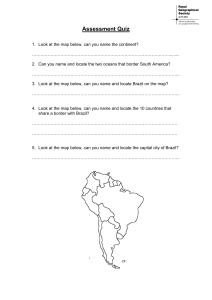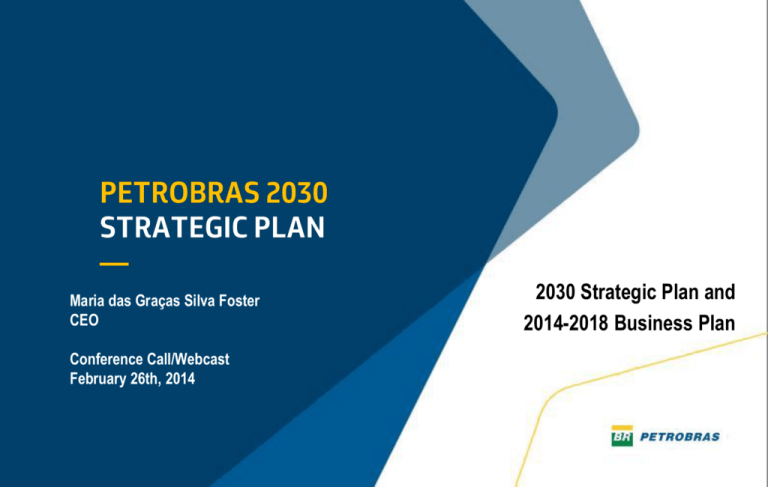
Maria das Graças Silva Foster
CEO
Conference Call/Webcast
February 26th, 2014
2030 Strategic Plan and
2014-2018 Business Plan
DISCLAIMER
FORWARD-LOOKING STATEMENTS:
DISCLAIMER
The presentation may contain forward-looking statements about future events within the
meaning of Section 27A of the Securities Act of 1933, as amended, and Section 21E of
the Securities Exchange Act of 1934, as amended, that are not based on historical facts
and are not assurances of future results. Such forward-looking statements merely reflect
the Company’s current views and estimates of future economic circumstances, industry
conditions, company performance and financial results. Such terms as "anticipate",
"believe", "expect", "forecast", "intend", "plan", "project", "seek", "should", along with
similar or analogous expressions, are used to identify such forward-looking statements.
Readers are cautioned that these statements are only projections and may differ
materially from actual future results or events. Readers are referred to the documents
filed by the Company with the SEC, specifically the Company’s most recent Annual
Report on Form 20-F, which identify important risk factors that could cause actual results
to differ from those contained in the forward-looking statements, including, among other
things, risks relating to general economic and business conditions, including crude oil and
other commodity prices, refining margins and prevailing exchange rates, uncertainties
inherent in making estimates of our oil and gas reserves including recently discovered oil
and gas reserves, international and Brazilian political, economic and social
developments, receipt of governmental approvals and licenses and our ability to obtain
financing.
We undertake no obligation to publicly update or revise any forward-looking
statements, whether as a result of new information or future events or for any
other reason. Figures for 2014 on are estimates or targets.
All forward-looking statements are expressly qualified in their entirety by this
cautionary statement, and you should not place reliance on any forward-looking
statement contained in this presentation.
NON-SEC COMPLIANT OIL AND GAS RESERVES:
CAUTIONARY STATEMENT FOR US INVESTORS
We present certain data in this presentation, such as oil and gas resources,
that we are not permitted to present in documents filed with the United States
Securities and Exchange Commission (SEC) under new Subpart 1200 to
Regulation S-K because such terms do not qualify as proved, probable or
possible reserves under Rule 4-10(a) of Regulation S-X.
2
2030 Strategic Plan
Agenda
1. 2007 (2020 Strategic Plan) x 2013 (2030 Strategic Plan) Context: Reasons for Revising the Plan
2. Changes in Business Environments
3. Supply x Demand x Prices
4. Petrobras’ Views on Opportunities in Brazil
5. Big Choices and Petrobras’ Strategies
•
Exploration and Production
•
Refining, Transportation, Marketing and Petrochemical (RTMP)
•
Distribution
•
Gas, Energy and Gas-Chemical
•
Biofuels
•
International
6. Challenges of the Corporate Segments
7. Mission, Vision 2030 e Corporate Drivers
4
Petrobras Strategic Plan: Recent History
Main Drivers for the Revision of 2013 Planning 2030 Vision
2010
Law 12.276: Transfer of Rights
Law 12.304: PPSA
Law 12.351: PSA
2007 2008
Last Offshore Shale Gas – Beginning of US
Areas Bid Shale Gas production
growth
2013
Libra Auction (Oct)
First PSA Auction
2013
Tight Oil – production
reaches 2.3 MMbpd
2008
World Economic Crisis
Brent drops to US$ 34,00/bbl
2005
2006
2006
Pre-Salt’s Discovery:
Lula (Jul)
2007
2008
2008
First Oil: Pre-Salt
Jubarte EWT (Sep)
2009
2010
2009
First Oil – Santos Pre-Salt:
Lula EWT (May)
2011
2011
Libra’s discovery
2020 Strategic Plan
2013
2014
2014
Pre-salt’s production
record: 407 kbpd (Feb)
2013
Pre-salt: 300 kbpd only
7 years after discovery*
2030 Strategic Plan
• Created in: 2007
• Created in: 2013
• Drivers: pre-salt’s discovery and growth of oil
products market in Brazil.
• Drivers: changes in regulatory framework in Brazil – new
Transfer of Rights and Production Sharing Agreement
Regimes, growth in US shale gas and tight oil production
and 2008 world economic crisis.
• 13 year horizon: strategies defined to 2020, based
on 2007’s exploratory potential, not considering
future bid rounds.
*GOM=17 years,
Campos B.=11 years,
North Sea=9 years
2012
• 17 year horizon: growth in oil production beyond 2020
demands, on top of the 2013 exploratory potential, the
incorporation of areas acquired in the new bids
(concession and PSA)
5
Petrobras’ Strategic Plan: WORLD – Business Environment 2007 x 2013
2007 – year when 2020 Strategic Plan was developed
2013 - year when 2030 Strategic Plan was developed
Positive perspective for the world economy. High
2008 world economic crisis reduces world economic growth
growth rates (2008-2012 expected GDP: 5% p.a. – Source: 1 expectations.
IMF, Oct/2007)
(Expected world GDP for 2014-2030 = 3.6% p.a. – Source:
Global Insight, 2013)
Strong growth for the Chinese economy resulting in high
Uncertainties surrounding the pace of China’s economic
commodity prices (China’s economic growth 2000-2013:
2 growth and impacts on prices. (China’s economic growth
9.8% p.a. – Source: IMF, Oct/2013)
2014-2030: 4.8 – 6.5% p.a. – Source: EIU and Global Insight,
2013)
Strong oil demand growth.
(1.8% p.a. 2003-2007 – Source: IEA, Nov/2007)
Projections for oil prices increased every year, due to
demand growth and the views on depletion in non-OPEC
production. (Average projected price for the 2007-2020
period: US$ 55/bbl in 2007 and US$ 75/bbl in 2008 –
Source: Pira, 2007 and 2008)
3 Slow-down in oil demand growth (0.7% p.a. 2013-2030 –
Great enthusiasm with biofuels.
5 Non-conventionals revolution: 2030 production: tight oil – 5.8
Perspective of growth in US dependency on oil and gas
imports (growth in LNG imports).
Source: IEA, Nov/2013)
Oil price stable with perspectives of a small decrease in the
mid-term (non-conventionals production growth in US, Irak and
4
Brazil). (2013-2030 projected price: US$ 100/bbl. Source: Pira,
2013)
MMbpd and shale gas - 745 bn m³ (Source: IEA, 2013)
Perspective for US self-sufficiency in Gas by 2019 and
6
reduction of oil imports needs from 7.9 to 3.6 MMbpd in 2030
(Source: IEA, 2013)
6
Petrobras’ Strategic Plan: BRAZIL – Business Environment 2007 x 2013
2007 – year when 2020 Strategic Plan was developed
2013 - year when 2030 Strategic Plan was developed
Perspectives of oil production growth in Brazil due to the Pre-salt’s
Deeper knowledge on the Pre-salt, with successive production records. We
discoveries. Questions on the existence and feasibility of
already have 10 production units operating in the Pre-salt layer.
technologies for Pre-salt production. Examples: salt movements; 1 Experience in the Pre-salt exploration and production and in the
H2S content; CO2 treatment and reinjection .
reservoir performance led us to the cost optimization phase.
E&P activities in Brazil were regulated solely by the concession
Three regulatory frameworks– Oil and Gas business with three
2
frameworks: Concession, Transfer of Rights and Production Sharing
framework.
Agreement
Critical resources were mapped to attract foreign suppliers to Brazil.
3 Local Content Policy is a reality. National industry presses ahead with its
There were uncertainties surrounding the naval industry’s capacity
learning curve, especially in the naval segment, with perspectives of
to meet Post-salt + Pre-Salt’s demands.
competitiveness.
Perspectives on oil products demand growth for the 2007-2011
period was 2.8% p.a.:
Perspective on oil products demand growth for the 2014-2018 period
of 2.5% p.a. and 2.2% p.a. for 2019-2030
- A 4.1% p.a. fleet growth was expected, alongside wealth creation;
- Biodiesel requirements evolving to B5 in 2010 up to 2020.
4
Great expectation on strong ethanol expansion, with the
announcement of 100 new projects (Source: Consultoria Ideia/2007)
Lower expectation for ethanol expansion, focused on the recovery of
5 agricultural productivity. Ethanol demand growth of 5.4% p.a. in the 20142030 period, being met, up to 2016, by spare capacity.
- For 2007-2011 growth amounted to 4.5% p.a. and fleet growth to 7.4% p.a.
- A 5.8% fleet growth is expected for the 2014-2018 period and 4.2% for 20192030.
- Perspective on the evolution of biodiesel requirements from the current B5 to B8
up to 2010 and B10 up to 2023, flat up to 2030
7
World Oil Supply x Demand: 2013-2020
Economic feasibility of future oil production
Supply challenges
Demand Projection and Expected Decline of
World Oil Production
120
100
90
80
70
Total 23.1 MM bpd
New Projects
101.5 MM bpd
78.4 MM bpd
Current
Production
2020
World Liquids Demand (MM bpd)
110
60
50
2012 2014 2016 2018 2020 2022 2024 2026 2028 2030
2020 Production Volume from New Projects with production start up
from 2013 on according to WoodMackenzie
Production volumes from new projects (thousand barrels per day)
0
Brazil
Venezuela
Latin Am. Others
West Africa
North Africa
Africa Others
EUA (Onshore)
Canadá Oil Sands
EUA (Golfo do México)
México
Canadá
EUA (Alasca)
Iraq
Iran
Saudi Arabia
Middle East Others
China
Australia
Asia Others
North Sea
Russia and East Europe
Caspian
Europe Others
500 1000 1500 2000 2500 3000 3500
2.727
1.377
1.233
2.069
814
977
1.032
960
938
Latam
5.337
Africa
3.859
Tight Oil Contribution
(382 Mbpd)
North Am.
3.810
486
365
29
1.358
1.209
231
1.012
824
Asia
2.394
453
1.118
1.593
1.558
514
224
Middle East
3.809
Europe + FSU
3.888
Total 23.1 MM bpd
Source: Wood Mackenzie Data - Global Oil Supply Tool (May/2013), developed by Petrobras, save for
Brazil data, for which the source is Petrobras’ internal estimates (Jul/2013).
8
World Oil Supply x Demand: 2013-2030
Economic feasibility of future oil production
Supply challenges
Demand Projection and Expected Decline of
World Oil Production
Challenges for New Oil Production Projects around 2030
120
• Each country has specific challenges to sustain or grow production
in the 2030 horizon:
Projects In operation
100
90
80
70
New Projects
–USA: In America, tight oil sweet spots will be more quickly explored by
2020, increasing project costs in the next decade. Uncertainties
surrounding environmental restrictions persist.
50.8 MM bpd
World Liquids Demand (MM bpd)
110
Current
Production
60
–Brazil: Focus on deep waters, for which the frequency of bid rounds,
opportunities and obligations will be the variables that companies will
consider when evaluating their participation in bids or consortia.
–Canada: High production costs lead to marginal producer status,
demanding a continuous search of efficiency gains
–Russia: Current production in advance phase of decline, demanding
substantial investment in the development of new fields, both in mature
areas and new production frontiers.
–Iraq: sustain production increase through solving internal conflicts.
• Common Challenge: Individual projects management reducing
Capex and Opex.
50
2012 2014 2016 2018 2020 2022 2024 2026 2028 2030
Source: Petrobras development, based on World Energy Outlook/IEA 2013; World Oil Outlook/OPEC 2013;
CERA 2013; WoodMakcenzie 2013.
9
2030 Strategic Plan Assumptions
Brent and Henry Hub Natural Gas Prices
Petrobras’ assumptions on Brent price within the most conservative range of market projections.
Petrobras’ projection for Henry Hub natural gas prices is close to the average of long term’s projections.
Henry Hub Natural Gas Prices in US$/MMBtu
12
11
10
9
8
7
6
5
4
3
2
1
0
Projections*
2030
2027
2024
2021
2018
2015
2012
2009
2006
Petrobras
2003
Henry Hub Nat. Gas Prices in US$/MM Btu
(2014 US$)
Oil prices in US$/bbl (2010 – 2030)
2013
2014
2015-2017
2018-2030
2013
2014
2015-2017
2018-2030
US$ 107/bbl
US$ 105/bbl
US$ 100/bbl
US$ 95/bbl
3.51 US$/MMBtu
4.00 US$/MMBtu
4.60 US$/MMBtu
5.88 US$/MMBtu
* Projections: AIE (Nov/2013), PIRA (May/2013) ,
WoodMackenzie (March/2013), IHS (Jul/2013), AEO (April/2013).
* Projections: IEA/DOE (June/2012), PIRA (Jan/2013) and CERA
(Oct/20123), Barclays Capital (Nov/2012)
10
Brazil’s Sedimentary Basins: Areas Granted to Petrobras in 2007 and 2013
In 2007, Petrobras held the rights to an exploratory
area 84% larger than 2013’s.
Areas Granted to be Explored by Petrobras
in Brazil
2007: 140 thousand km²
2013: 76 thousand km²
Note: 2013 position does not include Libra and Bids 11 and 12
State Limits
Sedimentary Basin
Petrobras 100%
Petrobras and Partners
11
Petrobras’ Strategy: Choices of an Integrated Energy Company
E&P
E&P
RTMP
To produce on average 4.0 million barrels of oil per day in the 2020-2030 period, under
Petrobras’ ownership in Brazil and abroad, acquiring exploration rights to meet this objective
To supply the Brazilian oil products market, reaching a refining capacity of 3.9 million bpd, to
match domestic market demand
To maintain the leadership in the domestic market for fuels, increasing the value added and
the preference for Petrobras’ brand
DISTRIBUTION
NATURAL GAS,
ENERGY and
GAS-CHEMICAL
BIOFUELS
To add value to the businesses of the natural gas chain, ensuring the monetization of the
gas from the Pre-salt and Brazil’s land basins.
To keep the growth in biofuels, ethanol and biodiesel, alongside the domestic market for
gasoline and diesel
Perform E&P activities, focusing on oil and gas exploration in Latin America, Africa and USA
INTERNATIONAL
12
Exploration and Production
To produce on average 4.0 million
barrels of oil per day in the 20202030 period, under Petrobras’
ownership in Brazil and abroad,
acquiring exploration rights to
meet this objective
13
Oil and NGL production scenarios in Brazil
Petrobras and Estimators: 2013, 2020 to 2035
In 2035, according to estimators, Brazil’s oil production will range from 4.7 to 6.6 million barrels of oil per day.
International Energy Agency places Brazil as the 6th largest oil producer in 2035.
Million bpd
Brazil’s Average Oil Production 2020-2030: 5.2 million bpd
Petrobras Vision*
1.
2.
3.
4.
Estimator
Brazil’s Oil Production
2020-2030 Average
Brazil’s Oil Production
2035
1. Petrobras - Brazil*
2. DOE
3. WoodMackenzie
4. CERA
5. AIE
5.2 million bpd
5.0 million bpd
4.9 million bpd
4.4 million bpd
5.4 million bpd in 2025
Outside SP 2030 horizon
6,6 million bpd
5,4 million bpd
4,7 million bpd
6,0 million bpd
2020-2030 Average
2035
Source: Petrobras – Dec/2013 – E&P-CORP
* Brazil’s production according to Petrobras’s view and reasoning, considering different paces Source: AIE 2013, DOE 2013, WoodMackenzie 2013, IHS - CERA 2013 (The use of this content was authorized in advance by IHS.
14
for the bid rounds put forward by the Government (Petrobras’ view today, 2013, up to 2030). Any further use or redistribution of this content is strictly prohibited without a written permission by IHS. All rights reserved).
Petrobras Big Choice for the E&P segment
4 million bpd average production: 2020 to 2030, Brazil and Abroad
Million bpd
Petrobras chooses to be a company with a potential production capacity of 4 million bpd in its activities
in Brazil* and abroad, maximizing profitability.
Average Oil Production in Brazil*
Petrobras + Third Parties + Government 2020-2030:
5.2 million bpd
Petrobras Average
Production in Brazil* and
Abroad 2013-2020:
3.0 million bpd
4,2
Petrobras Average Production in Brazil* and Abroad
2020-2030: 4.0 million bpd
Petrobras Average Production in
Brazil* 2020-2030: 3.7 million bpd
Petrobras Average Production
in Brazil* 2013-2020:
2.9 million bpd
Average 2020-2030
* Brazil’s production according to Petrobras’s view and reasoning, considering different paces
for the bid rounds put forward by the Government (Petrobras’ view today, 2013, up to 2030).
Source: Petrobras – Dec/2013 – E&P-CORP
15
Strategies – E&P Segment E&P: 2013-2030
1
Discover and appropriate reserves in Brazil, keeping a reserve to production ratio
above 12 years
2
Develop exploratory efforts in Brazil’s sedimentary basins, selectively and sharing
risks
3
Develop exploratory efforts for natural gas in Brazil’s sedimentary land basins
4
Maximize, with profitability, oil and gas recovery in Brazil’s concessions under
production
5
Develop Pre-salt’s Area production in Brazil
16
Refining, Transportation, Marketing and
Petrochemical (RTMP)
To supply the Brazilian oil
products market, reaching a
refining capacity of 3.9 million
bpd, to match domestic market
demand
17
Brazil: Oil and NGL production x Oil Products Demand
From 2013 base, oil products market to grow 20% by 2020 (2.7% p.a.) and 47% by 2030 (2.3% p.a.).
Million bpd
Average Oil Production in Brazil*
Petrobras + Third Parties + Government 2020-2030:
5.2 million bpd
3.7
Average Oil Products Demand in Brazil
2020-2030: 3.4 million bpd
* Brazil’s production according to Petrobras’s view and reasoning, considering different paces for the bid rounds put forward by the Government (Petrobras’ view today, 2013, up to 2030).
18
Brazil: Oil and NGL production x Oil Products Demand
From 2013 base, oil products market to grow 20% by 2020 (2.7% p.a.) and 47% by 2030 (2.3% p.a.).
Million bpd
Average Oil Production in Brazil*
Petrobras + Third Parties + Government 2020-2030:
5.2 million bpd
Petrobras Average Oil
Production in Brazil 2013-2020:
2.9 million bpd
Petrobras Average Oil Production in
Brazil 2020-2030:
3.7 million bpd
3.7
Average Oil Products Demand in Brazil
2020-2030: 3.4 million bpd
* Brazil’s production according to Petrobras’s view and reasoning, considering different paces for the bid rounds put forward by the Government (Petrobras’ view today, 2013, up to 2030).
19
Brazil: Oil and NGL Production x Oil Products Demand
Refining Expansion Aligned with the Domestic Market Growth
Petrobras’ processing capacity is expected to reach 3.9 million barrels per day by 2030.
million bpd
Oil Products Self-sufficiency:
Total throughput = Total demand
Volumes Self-sufficiency:
Oil production = oil products consumption
Average Oil Production in Brazil*
Petrobras+Third Parties+ Government 20202030: 5.2 million bpd
Petrobras Average Oil Production in
Brazil 2020-2030:
3.7 million bpd
Petrobras Average Oil Production
in Brazil 2013-2020:
2.9 million bpd
Average Demand for Oil Products in Brazil
2020-2030: 3.4 million bpd
*
PROMEGA
Increase in Capacity by 195 kbpd
OBS: Additional throughput capacity from PROMEGA (by/2016): +165 kbpd (existing refineries) + 30 kbpd (RNEST).
PROMEGA: Its goal is to increase diesel, jet fuel and gasoline production from the existing refineries, based on the increase in the capacity and efficiency of the processing units
* Brazil’s production according to Petrobras’s view and reasoning, considering different paces for the bid rounds put forward by the Government (Petrobras’ view today, 2013, up to 2030).
20
Distribution
To maintain the leadership in
the domestic market for fuels,
increasing the value added
and the preference for
Petrobras’ brand
21
Oil Products Distribution Markets and Petrobras Market Share
Maintenance of Participation in a Growing Market
Petrobras will grow organically its market share to 38% by 2030 with an investment program in Logistics. The Brazilian
oil products market will grow 74% during this period.
Brazil’s Oil Products Retail Market
BR Distribuidora Share
Regional Growth
(2013-2030)
(million m³/year and %)
million m³
400
37%
36%
37%
38%
38%
300
126
0
40%
30%
200
100
%
129
151
163
101
79
82
95
47
47
56
62
2013
2014
2018
2020
Others
BR Distribuidora
191
119
73
20%
North
+3.4%a.a.
Center-West
+3.3%a.a.
10%
0%
Average
20202030
Market-Share BR Distribuidora
Northeast
+4.0%a.a.
Southeast
+2.6%a.a.
South
+3.6%a.a.
22
Natural Gas, Energy and Gas-Chemical
To add value to the businesses
of the natural gas chain,
ensuring the monetization of the
gas from the Pre-salt and
Brazil’s land basins.
23
Natural Gas Supply and Demand Balance: 2013 - 2030
(million m³/day)
The natural gas imports and transportation infrastructure already installed is enough to meet Petrobras’ demand until 2030*.
Supply
Demand
Domestic Supply of NG¹
41
47
41
47
2013
2014
97
86
75
2018
8
89
86
75
Thermoelectric Demand Petrobras + Third Parties
2020
Supply E&P
New BIDs
Supply E&P
Average
2020-2030
47
33
35
35
35
35
12
12
12
11
11
2013
2014
2018
2020
Average
2020-2030
30
6
30
6
30
6
30
6
24
24
24
24
24
2013
2014
2018
2020
27
7
7
7
Flexible
To be contracted
Flexible
41
39
52
49
57
Demand
Inflexible
Average
2020-2030 **
7
4
Inflexible
2013
2014
LNG Regasification
41
14
2
NG Distributors Demand
30
6
41
14
50
47
Bolivia Imports
41
14
49
45
2018
2020
Average
2020-2030
Petrobras Demand: Fertilizers + Refineries
41
14
27
TRBA
7
20
20
20
20
20
2013
2014
2018
2020
Average
2020-2030 **
98
118
146
157
168
Pecém
Baía de
Guanabara
12
9
2013
Total
¹ Includes NG from Partners and Third Parties.
** Supply expects the renovation of the GSA with YPFB (Bolivia) and does not consider the need of a 4th LNG terminal.
96
16
3
13
3
21
1
5
28 1
5
22
35
3
5
27
Fertilizers
under Evaluation
Fertilizers
Refining
2014
2018
2020
Average
2020-2030
105
124
129
143
* Excludes natural gas production outflow and processing infrastructure.
Total
24
Biofuels
To keep the growth in
biofuels, ethanol and
biodiesel, alongside the
domestic market for
gasoline and diesel
25
Participation in the Biofuels Market: 2013 - 2030
Increase of Ethanol and Biofuel production, following the growth of the gasoline and diesel domestic market.
Gasoline Type A and Ethanol Market ¹
(thous. bpd)
2,000
1,500
1,000
500
934
395
986
422
1,175
559
1,275
642
Gasoline
Type A and
Ethanol
1,501 Market
Diesel and Biodiesel ²
(thous. bpd)
2,000
1,618
1,500
1,054
2014
2018
2020
¹ Consists of Gasoline Type A, anhydrous ethanol and hydrous ethanol.
Participation of PBIO in Ethanol Production
120
(thous. bpd)
80
92
61
43
40
18
8
0
2013
22
26
Ethanol
Market
Average
2020-2030
0
2013
2020
54
100
107
152
2014
2018
2020
Average
2020-2030
² Domestic market only
Participation of PBIO in Biodiesel Production
PBIO Ethanol
+ Partners
40
60
30
PBIO
Ethanol
20
10
2018
Diesel and
Biodiesel Market
Biodiesel Market
500
119
9
2014
1,380
1,000
822
50
0
2013
1,083
1,289
Average
2020-2030
(thous. bpd)
25
18
10
8
0
2013
11
23
PBIO
Biodiesel
36 + Partners
32
PBIO
Biodiesel
16
9
2014
2018
2020
Average
2020-2030 26
International Area
Perform
E&P
activities,
focusing on oil and gas
exploration in Latin America,
Africa and USA
27
International Oil and Gas Production: 2013 - 2030
Investment through participation in exploratory opportunities in Latin America, Africa and the U.S., especially from 2019 onwards.
Act on the conservation of the natural gas supply from Bolivia to Brazil and on non-conventionals in Argentina and USA.
thousand boed
Petrobras Average International Oil and
Natural Gas Production 2020-2030: 479 kboe
Petrobras’ Average International Oil and
Natural Gas Production 2013-2020: 229 kboe
Petrobras’ Average International Oil
Production 2020-2030: 267 kbpd
Petrobras’ Average International Oil
Production 2013-2020: 123 kbpd
Average 2020-2030
28
Challenges of the Corporate Segments
Human Resources (HR)
Social Responsibility (SR)
Health, Safety, Environment and Energy Efficiency (HSEE)
Technology
29
Challenges of the Corporate Segments
Human Resources Challenges (HR)
To have an innovative and flexible human resource program, taking as a base the
appreciation of the employees and their contribution to the sustainability of
Petrobras
Social Responsibility Challenges (SR)
To ensure the alignment and integration of social responsibility in the decision
making processes and in the management of the business
Health, Safety, Environment and Energy Efficiency Challenges (HSEE)
To consolidate HSEE issues as a principle of the Company’s operations and
permanent commitment from the workforce
Technolgy Challenges
To keep the technological system recognized for providing technologies for the
sustainable growth of the Company
30
Mission, Vision 2030 and Corporate Drivers
Mission
Vision 2030
To perform in the oil and gas industry in an
ethic, safe and profitable way, with social and
environmental responsibility, providing products
suited to the needs of its clients and contributing
to the development of Brazil and the countries
where it operates.
To be one of the five largest integrated energy
companies in the world¹ and the preferred one
by its stakeholders.
Corporate Drivers
Integrated Growth
Profitability
Social and Environmental
Responsibility
¹ Metric: one of the five largest oil producers among all companies, with or without shares in stock
exchanges. (Source for calculation: Petroleum Intelligence Weekly – PIW - Annual Report )
31
2014-2018 Business
and Management Plan
Exploratory Success and Reserves Increase
46 discoveries in the last 14 months (Jan/13 – Feb/14), of which 24 were offshore (15 in Pre-salt).
TANGO(CES-161)
PITU(RNS-158)
PAD FARFAN-1(SES-176D
PAD MURIÚ-1(SES-175D)
PAD MOITA BONITA(SES-178)
PAD TAMBUATÁ SANTONIANO(GLF-35)
SÃO BERNARDO(ESS-216)
ARJUNA(ESS-211)
RIO PURUS(CXR-1DA)
EXT DE FORNO(AB-125)
EXT DE BRAVA (VD-19)
MANDARIM(MLS-105)
BENEDITO(BP-8)
FLORIM(RJS-704)
PAD IARA EXT-4(RJS-706)
SAGITÁRIO(SPS-98)
FRANCO NORDESTE(RJS-724)
FRANCO LESTE(RJS-723)
FRANCO SUL(RJS-700)
ENTORNO DE IARA-1(RJS-711)
IARA ALTO ÂNGULO(RJS-715)
JÚPITER BRACUHI(RJS-713)
NE TUPI-2(RJS-721)
SUL DE TUPI(RJS-698))
State Limit
Sedimentary Basin
100% Petrobras
Petrobras and Partners
Brazil
Discoveries: 46
• Offshore: 24
• Onshore: 22
Exploratory Success Ratio: 75%
Reserves: 16.0 Billion boe
RRR¹: 131%
> 100% for the 21st consecutive year
R/P²: 20.0 years
Pre-Salt
Discoveries: 14, of which 5 were pioneers
wells
Exploratory Success Ratio: 100%
Reserves: 300 km of SE region, 55% of GDP
¹ RRR: Reserves Replacement Ratio
² R/P: Reserve / Production
33
33
2014-2018 BMP: Petrobras Oil and NGL Production Curve in Brazil
2014 Growth:
7.5% ± 1p.a.
Oil and NGL production operate by Petrobras in 2020 will be
4.9 million of bpd.
Versão 20/02 22:00
34
2014-2018 BMP: Petrobras Oil, NGL and Natural Gas Production Curve in Brazil
2014 Growth:
7.5% ± 1p.a.
Versão 20/02 22:00
35
2014-2018 BMP: Petrobras Oil and NGL Production Curve in Brazil
Oi and NGL production (million bpd)
1st Oil Forecast
2014 - 2015
9 Production Units
Concluded
Sapinhoá Pilot
(Cid. São Paulo)
Baúna
(Cid. Itajaí)
• Norte Pq. Baleias
(P-58) 1st Quarter
• Roncador IV
(P-62) 2º Quarter
Lula NE Pilot
(Cid. Paraty)
• Papa-Terra
(P-61 + TAD )
Papa-Terra
(P-63)
Roncador III
(P-55)
• Norte Pq. Baleias
(P-58)
• Roncador IV
(P-62)
2nd Quarter
• Sapinhoá Norte
(Cid. Ilhabela)
3rd Quarter
• Iracema Sul
(Cid. Mangaratiba)
4th Quarter
• Papa-Terra
(P-61)
1st Oil Forecast
2016 - 2020
• Lula Alto
• Iracema Norte
(Cid. Itaguaí)
3rd Quarter
• Lula Central
• Lula Ext. Sul
e ToR Sul de Lula
(P-68)
• Lula Sul
(P-66)
• Lula Oeste
(P-69)
• Búzios I
(P-74)
• Búzios III
(P-76)
• Lapa
• Iara Horst
(P-70)
• Lula Norte
(P-67)
• Búzios II
(P-75)
•Tartaruga Verde and
Mestiça
• Búzios IV
(P-77)
• NE de Tupi
(P-72)
• Deep Water ES
• Iara NW
(P-71)
• Marlim I
•Revitalization
• Júpiter
• Búzios V
• Espadarte III
• Deep Water II
SE
• Marlim II
Revitalization
• Libra
• Florim
• Deep Water I
SE
• Sul Pq. Baleias
• Maromba I
• Carcará
• Entorno de Iara
(P-73)
• Papa-Terra
(TAD)
2014 Growth:
7.5% ± 1p.a.
Production Units in operation
• Production Units Delivered in 2013
--- Production Units not bid as of Feb/2014
36
Production Units Delivered, under Construction and under Bidding
1,000 kbpd
Additional Installed Capacity Operated by Petrobras
300 kbpd
150 kbpd
P-67
1,000 kbpd
900 kbpd
1,050 kbpd
P-73
TAD
P-75
Cid. Mangaratiba
P-77
P-67
Cid. Itaguaí
P-71
P-62
Cid. Caraguatatuba
P-61
P-70
P-72
Cid. Ilhabela
P-58
P-76
Under Bidding Process:
P-55
P-63
Cid. Paraty
•
•
•
•
•
•
•
Tartaruga Verde and Mestiça
Deep Water ES
Marlim I Revitalization
Deep Water I SE
Maromba I
Sul do Pq. das Baleias
Carcará
P-74
PU to be bid:
P-66
P-69
P-68
Cid. Saquarema
Cid. Itajaí
•Tartaruga Verde and
Mestiça
Cid. Maricá
Cid. São Paulo
2013
PU under bidding:
2014
2015
2016
•
•
•
•
•
•
Deep Water ES
Marlim I Revitalization
Deep Water I SE
Maromba I
Sul do Pq. das Baleias
Carcará
+ 600 kbpd
+ 150 kbpd
2017
2018
37
19 New PLSVs to support the Oil Curve
PLSVs under Operation and Construction
Current Fleet = 11 PLSVs
Sunrise 270t
Deep Constructor 125t
Kommandor 3000 135t
Normand7 340t
+ 8 throughout 2014
North Ocean 102 210t
Lay Vessel 105 300t
+9
+2
3 PLSVs of 550t
(The Netherlands)
1 PLSVs of 300t
(Suape)
1 PLSVs of 300t
(The Netherlands)
1 PLSVs of 550t
(The Netherlands)
Sapura Diamante 550t
Sapura Topázio 550t
2 PLSVs of 550t
(The Netherlands)
P-58
Skandi Vitória 300t
Seven Mar 340t
Polar Onyx 275t
Seven Waves 550t
Skandi Niterói 270t
Seven Seas 430t
Coral do Atlântico 550t
Estrela do Mar 550t
2 PLSVs of 650t
(The Netherlands)
McDermott
Agile 200t
Seven Condor 230t
1 PLSVs of 300t
(Suape)
Seven Phoenix 340t
PLSV: Pipe Laying Support Vessel
2014
2014
2016
2017
38
Brazil: Oil and NGL Production x Oil Products Demand
Refining Expansion Aligned with Domestic Market Growth
Million bpd
Petrobras’ refining capacity should reach 3.3 million bpd in 2020, aligned with domestic market growth.
PROMEGA
Capacity Expansion of 195 kbpd
RNEST
1st Phase
4th Quarter
RNEST
2nd Phase
2nd Quarter
Comperj
1st Phase
Premium I
1st Phase
Premium II
PROMEGA additional refining capacity (by Dec/2016): +165 kbpd (current refineries) + 30 kbpd (RNEST).
PROMEGA targets are to increase diesel, jet fuel and gasoline production of our refineries, based on capacity and efficiency increase of processing units.
39
RNEST and COMPERJ Refineries
Physical and Financial Monitoring
90
80
60
BMP 13-17: 87%
Accomplished: 84%
50
40
10000
8000
10
2000
0
0
abr-05
out-05
abr-06
out-06
abr-07
out-07
abr-08
out-08
abr-09
out-09
abr-10
out-10
abr-11
out-11
abr-12
out-12
abr-13
out-13
abr-14
out-14
abr-15
out-15
abr-16
out-16
abr-17
out-17
abr-18
out-18
abr-19
out-19
abr-20
out-20
4000
PNG
BMP 13-17
13-17
Accomplished
Realizado
Projetado
Planned
100
90
80
(%)
70
60
30
Financial Monitoring – S-Curve
PNG 13-17: US$
BMP 13-17
13.457 MM
US$ 13.457 MM
Projetado: US$
Planned
13.596 MM
US$ 13.596 MM
12.000
10.000
8.000
BMP 13-17: 7,882 Million
Accomplished: 7,573 Million
6.000
4.000
20
2.000
mai-04
nov-04
mai-05
nov-05
mai-06
nov-06
mai-07
nov-07
mai-08
nov-08
mai-09
nov-09
mai-10
nov-10
mai-11
nov-11
mai-12
nov-12
mai-13
nov-13
mai-14
nov-14
mai-15
nov-15
mai-16
nov-16
mai-17
nov-17
mai-18
nov-18
mai-19
nov-19
mai-20
nov-20
mai-21
nov-21
10
0
Projetado
Planned
14.000
BMP
PNG 13-17
13-17
2016
2016
Planned
Projetado
2016
2016
BMP 13-17: 67%
Accomplished: 66%
40
Accomplished
Realizado
16.000
IMPLEMENTATION MILESTONES
1 - Start-up – ETA (Jun/2015)
2 - Start-up - ETDI (Jun/2015)
3 - Start-up - UDAV (Ago/2016)
4 - Start-up - UCR (Ago/2016)
5 - Start-up - HCC (Ago/2016)
50
BMP 13-17: 15,246 Million
Accomplished: 14,841 Million
PNG
BMP 13-17
13-17
Physical Monitoring – S-Curve
110
Projetado:
Planned US$
18.579 MM
US$ 18.579 MM
12000
20
COMPERJ
feb/14
14000
6000
PNG
BMP 12-16
12-16
PNG 13-17
13-17:
BMP
US$ 18.515
18.515MM
MM
US$
16000
30
feb/14
Start-up: 2016
18000
PNG 13-17
13-17
BMP
2014
2014
Projetado
Planned
2014
2014
BMP 12-16
12-16
PNG
BMP 13-17
13-17
PNG
Accomplished
Realizado
Planned
Projetado
0
jan-10
jul-10
jan-11
jul-11
jan-12
jul-12
jan-13
jul-13
jan-14
jul-14
jan-15
jul-15
jan-16
jul-16
jan-17
jul-17
jan-18
jul-18
jan-19
jul-19
jan-20
jul-20
jan-21
jul-21
(%)
70
Financial Monitoring – S-Curve
abr-05
out-05
abr-06
out-06
abr-07
out-07
abr-08
out-08
abr-09
out-09
abr-10
out-10
abr-11
out-11
abr-12
out-12
abr-13
out-13
abr-14
out-14
abr-15
out-15
abr-16
out-16
abr-17
out-17
abr-18
out-18
abr-19
out-19
abr-20
out-20
IMPLEMENTION MILESTONES
1 - Start-up - ETA (Mar/2014)
2 - Start-up - ETDI (Sep/2014)
3 - Start-up UDA 11 (Oct/2014)
4 - Start-up UCR 21 (Nov/2014)
5 - Start-up HDT Diesel 31 (Nov/2014)
100
20000
US$ MM
Start-up: 4th Quarter
Physical Monitoring – S-Curve
110
US$ MM
RNEST
PNG
BMP13-17
13-17
Accomplished
Realizado
Projetado
Planned
40
Natural Gas, Energy and Gas-Chemical
Monetization of Natural Gas reserves by increasing the capacity of thermoelectric generation and of nitrogenous fertilizers,
as well as the NG distributor demand.
+20%
7.5
Installed Capacity of 5.0
Thermoelectric Generation
2.5
(GW)
6.8
6.0
6,3
6.0
6.0
6.0
6.0
2013
2014
2018
2020
49
52
0.3
Thermoelectric Power Plant projects:
7,2
1.2
0.8
New TP
Current Capacity
TP Baixada Fluminense
TP Azulão
TP Bahia II
TP Sudeste VI
Feb/2014
2017
2020
2020
0.0
+33%
60
NG Distributor
Demand
(million m³/d)
40
41
39
Infrastructure projects of NG:
Delivery gates along GASBOL and NE and
SE Network
20
0
2013
2014
2018
2020
3.5
0.8
3.5
0.7
2.7
2.8
2018
2020
+169%
4.5
Ammonia and Urea
Market Supply
(million ton/year)
3.0
1.5
0.0
1.3
1.1
2013
1.8
0.2
1.6
2014
0.2
Ammonia
Fertilizers projects:
Urea
Ammonium Sulfate
UNF III (MS)
UNF V (MG)
Feb/2014
4th Quarter - 2014
2017
41
International: Oil and Natural Gas Production
Production growth by participation in exploratory opportunities in Latin America, Africa and the USA.
Maintenance of Bolivian gas supply to Brazil and minority operation in non-conventional in Argentina and the USA.
kboed
294
253
177
152
140
92
2014-2020 Growth rate: 8.9 % p.a.
2014-2020 Growth rate: 8.7 % p.a.
2014
2015
2016
2017
Petrobras International Oil and Natural Gas Production
2018
2019
2020
Petrobras International Oil Production
42
2014-18 Business and Management Plan Fundamentals
PERFORMANCE
CAPITAL
DISCIPLINE
PRIORITY
Financiability Assumptions
• Investment Grade rating maintenance
• No new equity issuance
• Convergence with International Prices
(Oil Products)
• Partnerships and Business Models
Restructuring
2014
• Management
focused on
reaching
physical and
financial targets
of each project
• Guarantee the
expansion of
the business
with solid
financial
indicators
• Priority for
oil and
natural gas
exploration &
production
projects in
Brazil
2018
43
2014-2018 BMP Investments
Approved by the Board of Directors of Petrobras on 02/25/2014
BMP 2014-2018
US$ 220.6 billion
Financiability Assumptions
38.7
(18%)
•
10.1
(5%)
9.7
(4%)
2.7
(1.2%)
2.2
(1%)
153.9
(70%)
1)
2)
2,3
(1.0%)
1.0
(0.4%)
E&P
Biofuels
Downstream
Distribution
Gas and Energy
Engineering, Technology and Materials
International
Other Areas 1
Financial Area, Strategy and Corporate-Services
Material Fact of 11/29/2013
Investment Grade Rating maintenance:
−
Return of the debt ratios and leverage
to their limits within 24 months2
−
Leverage lower than 35%
−
Net Debt/Ebitda lower than 2.5x
•
No new equity issuance
•
Convergence with International Prices (Oil
Products)
•
Partnerships and Business Models
Restructuring
44
2014-2018 BMP Investments: US$ 220.6 Billion
Portfolio of Projects Under Implementation, Bidding Process and Evaluation
Total Investments
Portfolio of Projects
Under Implementation + Under Bidding Process
Portfolio of Projects
Under Evaluation
US$ 206.8 Billion
US$ 13.8 Billion
US$ 220.6 Billion
Under Implementation
38.7
(18%)
10,1
(5%)
2,3
9,7
(4%) (1,0%)
153.9
(70%)
1,0
(0,4%)
2,2
(1%)
=
2,7
(1,2%)
• Projects being executed
(construction)
• Projects already bid
Under Bidding Process
•E&P projects in Brazil
•Premium I Refinery
•Premium II Refinery
• Resources required for studies
of Projects Under Evaluation
Oil Production 2020:
4.2 million bpd
E&P
Biofuels
Downstream
Distribution
Gas and Energy
Engineering, Technology and Materials
International
Other Areas 1
1) Financial Area, Strategy and Corporate-Services
+
• Projects under Studies
in Phase I, II or III
(except E&P in Brazil)
¹ Includes E&P projects in Brazil that must pass through bidding process of
their units, as well as Premium I and Premium II refineries that bidding
process will be done in 2014.
No impact in Oil Production 2020
45
Petrobras Investments in Exploration and Production: US$ 153.9 billion
Total E&P
US$ 153.9 bilhões
18,0
(12%)
Production Development + Exploration
US$ 135.9 billion
23,4
(15%)
53,9
(40%)
82,0
(60%)
112,5
(73%)
Pre-Salt (Concession)
Exploration
Production Development
Infrastructure and Support
Post-Salt
Pre-Salt
Transfer of Rights
PSA (Libra)
E&P Petrobras
US$ 153.9 Billion
(77%)
+
E&P Partners
US$ 44.8 Billion
(23%)
=
Total with Partners
US$ 198.7 Billion
(100%)
46
Petrobras Investments: US$ 58.5 billion
Downstream – Gas, Energy and Gas-Chemical – International
Downstream
US$ 38.7 billion
Refining Capacity Expansion
Operational Improvement
Quality and Conversion
Logistics for Oil
0,3
0,3
1%
1%
0,4
1%
1,4
3%
Projects Under Implementation
1,4
4%
3,3
9%
16,8
43%
5,5
14%
RNEST (Pernambuco)
Premium I – 1st phase (Maranhão)
COMPERJ 1st phase (Rio de Janeiro)
Premium II (Ceará)
PROMEF – 45 Vessels to transport Oil
and Oil Products
Fleet Expansion
Petrochemical
Logistics for Ethanol
9,4
24%
Distribution
Corporate
0,1
1%
Gas, Energy and
Gas-Chemical
Network
Projects Under Implementation
1,3
13%
US$ 10.1 billion
Energy
Projects Under Bidding Process
2,6
25%
6,1
61%
UNF III (Mato Grosso do Sul)
UNF V (Minas Gerais)
Rote 2: Gas pipeline and NGPU
Rote 3: Gas pipeline and NGPU
Regas - LNG
Gas-Chemical Operational Units (Nitrogenous)
International
US$ 9.7 billion
Exploration & Production
Refining & Marketing
Distribution
Gas & Energy
Corporate
Petrochemical
0,05
0,5%
0,6
6%
9,0
92%
0,01
0,1% 0,05
0,5%
0,1
0,7%
Projects Under Implementation
E&P USA – Saint Malo
E&P USA – Cascade and Chinook
E&P USA – Lucius
E&P Argentina – Medanito and Entre Lomas
E&P Bolivia – San Alberto and San Antonio
E&P Nigeria – Egina
Projects under implementation, under evaluation and under bidding were included. .
47
2014-2018 BMP: Investment and Operating Costs Management
2014-2018 BMP
US$ 220.6 Billion
PRC-Poço
PROEF
Program to Increase
Operational Efficiency
UO-BC
UO-RIO
PROCOP
Operating Costs
Optimization Program
Program to Reduce Well
Costs
PRC-Sub
Program to Reduce
Subsea Facilities Costs
INFRALOG – Logistic Infrastructure Optimization Program
Local Content Management– Take advantage of the industry´s capacity to maximize gains to Petrobras
Health, Safety, Environment and Energy Efficiency
PROCOP: Focus on OPEX, operating costs of the Company activities – Manageable Operating Costs..
PRC-Poço: Focus on CAPEX dedicated to Wells construction – Investments in Drilling and Completion.
PRC Sub: Focus on CAPEX dedicated to subsea systems construction.
48
2014-2018 BMP
Incorporates operational efficiency gains from PROCOP
Costs reduction between 2013 and 2016 with potential savings of R$ 37.5 billion in nominal values
Refining Cost
(R$ thous./UEDC *):
Logistic Cost in Downstream
(R$/bbl):
Lifting Cost
(R$/boe):
34,8
32,7
Gains from PROCOP reduce Lifting Cost:
-5.9% p.a.
-7.2% p.a.
27,3 Without PROCOP
24,2 With PROCOP
2014
10,50
10,83
Without PROCOP
Excellence level in the management of materials and spares.
Adequacy of overhead.
10,11 With PROCOP
10,06
2014
Gains from PROCOP reduce Logistic Cost:
Reduction in shipping costs: simplification of customs procedures; optimization
of fuel consumption; and implementation of new management tools.
+0.12% p.a.
Optimization of inventory levels of oil and oil products.
Reduction of stored water in the logistics system.
2018
+1.32% p.a.
1,177
Gains from PROCOP reduce Refining Cost:
1,240
Without PROCOP
With PROCOP
-0.40% p.a.
1,013
2014
gas.
2018
+0.78% p.a.
1,029
Optimization of routine processes and resources used in the production of oil &
2018
Integrating common and interdependent activities among refineries.
Optimized use of support resources.
Optimization in the consumption of energy, catalyzers and chemicals.
* UEDC = Utilized Equivalent Distillation Capacity
2014-18 period: projected with nominal values.
49
2014-2018 BMP: Financiability Analysis– US$ 206.8 billion
Total Investment
Projects Under Implementation + Projects
Under Bidding Process
Projects Under Evaluation
US$ 220.6 billion
US$ 206.8 billion
US$ 13.8 billion
Under Implementation
38.7
(18%)
10.1
(5%)
9.7
(4%)
153.9
(70%)
1,0
(0.4%)
2,3
(1.0%)
2.2
(1%)
=
2.7
(1.2%)
• Projects being executed
(construction)
• Projects already bid
• Resources required for
studies of Projects Under
Evaluation
•E&P projects in Brazil
•Premium I Refinery
•Premium II Refinery
Oil Production 2020:
4.2 million bpd
E&P
Biofuels
Downstream
Distribution
Engineering, Technology
and Materials
Other Areas 1
Gas and Energy
International
1) Financial Area, Strategy and Corporate-Services
2) As occurred in 2012 (2012-2016 BMP ) and in 2013 (2013-2017 BMP).
• Projects under Studies
in Phase I, II or III
(except E&P in Brazil)
Under Bidding Process
Financiability
US$ 206.8 billion
¹ Includes E&P projects in Brazil that must pass through bidding process of
their units, as well as Premium I and Premium II refineries that bidding
process will be done in 2014.
+
No impact in Oil Production 2020
Low maturity of projects: not
considered in the
financiability analysis2
50
E&P and Dowstream Share Evolution in the Business and Management Plan
Portfolio of Projects for Financiability Evaluation
E&P share in Petrobras investments has been increasing in the last five Business and Management Plan
Investment
US$ 224.0 Billion
US$ 224.7 Billion
US$ 236.5 Billion
US$ 236.7 Billion
US$ 220.6 Billion
Portfolio of Projects for
Financiability Evaluation
70%
62%
E&P
48%
35%
52%
33%
Downstream
Other
Areas*
17%
2010-2014 BMP
15%
2011-2015 BMP
* Gas and Energy, International, BR Distribuidora, PBio , Engineering Technology and Materials (ETM) and Corporate and Services Area
56%
30%
14%
2012-2016 BMP
Total Capex
27%
18%
11%
2013-2017 BMP
Total Capex
12%
2014-2018 BMP
Total Capex
51
2014-2018 BMP: Financial Planning Assumptions
Financing analysis only incorporates projects under Implementation + Bidding = US$ 206.8 Billion
No equity issuance
Investment grade maintenance
Main Assumptions for Cash Flow Generation and Investment Levels
2014-2018 BMP is based on constant currencies from 2014.
Brent Prices (US$/bbl)
US$ 105 in 2014, declining to US$ 100 by 2017 and to US$ 95 in the long term
Average Exchange Rate (R$/US$)
R$ 2.23 in 2014, strengthening to R$ 1.92 in the long term
Leverage
Limit: < 35% │ Declining leverage (although limit surpassed in 2014)
Net Debt/ EBITDA
Limit: < 2.5x │ Limit will be surpassed in 2014 and will fall below 2.5x from 2015 and below 2.0x in
the end of period
Oil Product Prices in Brazil
Convergence of prices in Brazil to international benchmarks, according to diesel and gasoline price
policy appreciated by the Board of Directors on November 29th, 2013.
52
2014-2018 BMP: Operating Cash Flow and Funding Needs
261.7
9.1
261.7
39,8
9.9
61,3
60.5
54.9
Additional funding needs will be funded exclusively through new
debt. No equity issuance is envisaged
bilhão
US$Billion
US$
Free cash flow, before dividends, from 2015 on.
165,0
182.2
Annual borrowing needs 2014-2018
207,1
206.8
Gross – US$ 12.1 billion │Net – US$ 1.1 billion
Net borrowing needs below previous BMP due to:
Sources
Fontes
Uses
Usos
Business Model Restructuring
Cash Utilization
Third-party resources (Debt)
Operating Cash Flow (After Dividends) and Divestments
•
Higher oil production.
•
Expansion of refining capacity, reducing oil products imports.
•
Business model restructuring, which decreases cash needs
throughout the BMP.
Amortization
Investments
53
2014-2018 BMP: Leverage and Net Debt/EBITDA
Leverage
Net Debt/EBITDA
Declining leverage, within maximum limit of 35% from 2015 on
Net Debt/EBITDA comply with the limit from 2015 on
54
2014 – 2018
Business and Management Plan
The End
55

